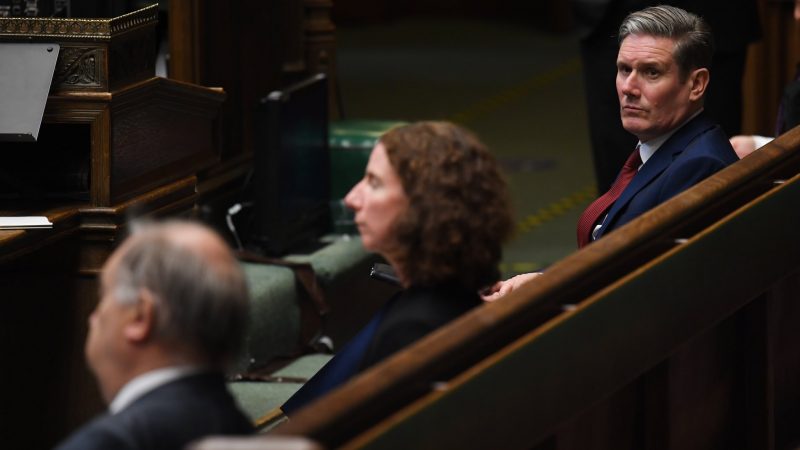
Labour is still working out its response to the Chancellor’s summer statement on Wednesday. The party came up with a sound bite to criticise the meal discount scheme, comparing the promised “New Deal” to the delivered “meal deal”. The founder of the Labour Hunger Campaign has written for LabourList on why it’s a “let them eat cake” moment for Rishi Sunak. And Keir Starmer’s party is focusing today on the “secret £1bn giveaway to second homeowners” that was later “snuck out”. Thangam Debbonaire is highlighting that stamp duty on second homes has been reduced from 8% to 3% – benefiting the most well-off, while renters have not had one bit of help during the crisis.
But the opposition party centred its criticisms yesterday on the job retention bonus scheme. This was Sunak’s plan for making sure that employers bring back furloughed workers rather than simply laying them off after the job retention scheme ends in October. It will see employers given £1,000 per employee that is retained until at least January. On Thursday morning, the Chancellor admitted that there was “dead weight” involved in the £9bn initiative, as a number of employers receiving the bonus will have already planned to bring back their staff.
Some commentators found Sunak’s honesty about the flaws in the scheme refreshing. But Keir Starmer leapt on the comment, declaring that “we can’t afford dead weight”. Bridget Phillipson as Shadow Chief Secretary to the Treasury followed this up with a letter to the head of HMRC, piggybacking on reports that he had expressed concern over the “value for money” of the proposal and it went through via a ministerial direction (when ministers instruct senior civil servants to go ahead with a use of public money even if it hasn’t met their tests, a tool that has been used frequently for Covid-19 measures).
Labour is absolutely right to be picking apart this scheme. A one-off £1,000 bonus probably isn’t enough to persuade employers who weren’t already going to retain furloughed staff to start doing so, which means it will mostly serve a nice little bonus that does little to reduce unemployment. As former John McDonnell aide James Meadway has set out, it is an example of corporate welfare: a handout for bosses, not a support for jobs. What scares many Labour members, however, is the language of affordability being used by the leadership. They are talking of “efficient public spending” at a time of crisis, and when the normal rules have been thrown out of the window – something that Labour should surely celebrate.
There are fears on the left that this could be a return to the austerity-lite days of Ed Miliband and Ed Balls. It is ground on which Labour cannot win, many have argued. There are clearly tensions over the response to the government’s current approach to the economy: last night, left-wing shadow Treasury team member Dan Carden rejected a Times story that described Labour backtracking from supporting a wealth tax in principle, though the story is accurate. This all goes to the need for Labour to find a way of criticising the government that doesn’t simply urge it to spend more, but doesn’t call for a targeted approach in a way that might limit the parameters of future policy-making either. Sign up to LabourList’s morning email for everything Labour, every weekday morning.



More from LabourList
Andy Burnham manifesto: Greater Manchester mayor reveals three key election pledges in bid for third term
‘Labour should grasp the chance to secure EU visa deal for young workers’
‘How Labour could win a Milton Keynes majority for the first time in decades’